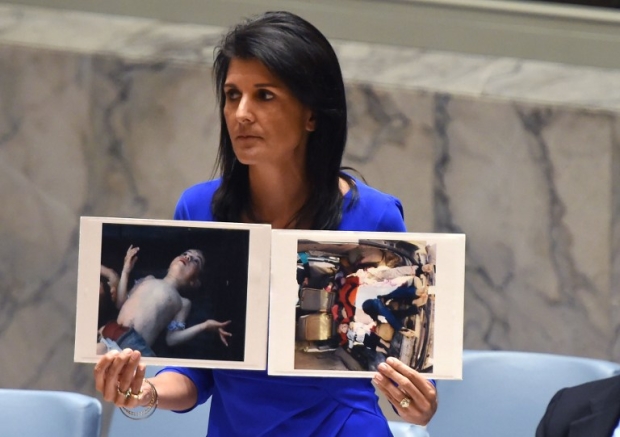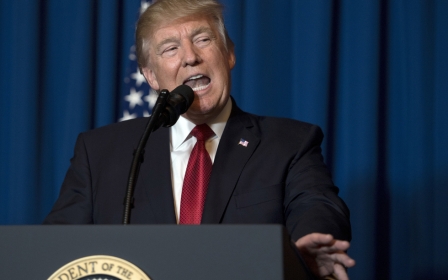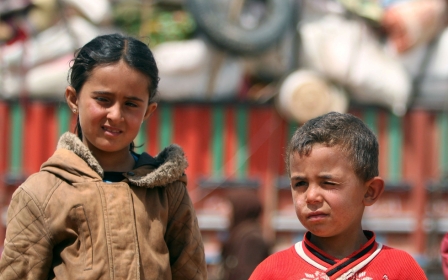US strikes signal dramatic shift in Syria policy
The UN is due to hold emergency talks about a US strike on an airbase in Syria that appears to mark a dramatic shift in US policy toward the six-year conflict.
The US fired a barrage of 59 cruise missiles at the Shayrat base in response to a suspected chemical attack on a rebel-held town on Tuesday that was widely blamed on the Damascus government.
The air strike prompted a global reaction on Friday with US allies backing the air strike and supporters of embattled Syrian President Bashar al-Assad condemning it.
Markets have also responded, with the price of oil nearing a one-month high.
Damascus has denied that it was responsible for the chemical attack in Idlib which killed over 70 people and has instead laid blame at the feet of Syrian rebels. President Assad on Friday dismissed the strikes as “reckless” and “irresponsible” and said his government will redouble its efforts against rebel groups.
The Russians also responded angrily with Foreign Minister Sergey Lavrov comparing the strike to the US invasion of Iraq in 2003. They also vowed to shore up Assad’s air defences in case of further strikes and called for an emergency meeting of the UN Ceasefire Taskforce in Geneva to discuss the air strike.
Hitting an airbase is not enough, there are 26 airbases that target civilians
- Army of Islam (Syrian rebel group)
Iran, another key ally of Assad, said the strikes were evidence that the US was fighting on the same side as Islamic State and Al-Qaeda.
Meanwhile Britain, France and Saudi Arabia backed the US military action, while Syrian rebel groups also responded positively.
“Hitting an airbase is not enough, there are 26 airbases that target civilians,” a key figure in the Army of Islam, one of the largest rebel groups, said on Friday.
The massive strike - US President Donald Trump's biggest military decision since taking office - marked a dramatic escalation in American involvement in Syria's six-year civil war.
It followed days of outrage at images of dead children and victims suffering convulsions from the suspected sarin gas attack on the rebel-held town of Khan Sheikhun.
It is unclear whether the air strike is part of a larger military operation. Trump's call on Thursday for “all civilised nations to join us [the United States] in seeking to end the slaughter and bloodshed in Syria,” has been understood differently.
Colin Kahl, a former US national security adviser, said Trump’s statement showed that the US government wanted to oust Assad and end the war
Australian Prime Minister Malcolm Turnbull played down its significance and said it was designed to stop the regime from launching chemical attacks from the Shayrat airbase and not part of a wider mission.
What is clear is that the strikes represent a dramatic shift in US policy toward Syria. There were months of shuttle diplomacy and indecision when Syria was suspected of using banned chemical weapons in 2013 before the then US President Barack Obama decided to hold off an attack. Yet the Trump administration has responded in a matter of days and responded directly.
Middle East Eye propose une couverture et une analyse indépendantes et incomparables du Moyen-Orient, de l’Afrique du Nord et d’autres régions du monde. Pour en savoir plus sur la reprise de ce contenu et les frais qui s’appliquent, veuillez remplir ce formulaire [en anglais]. Pour en savoir plus sur MEE, cliquez ici [en anglais].




